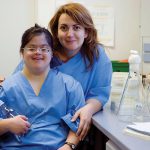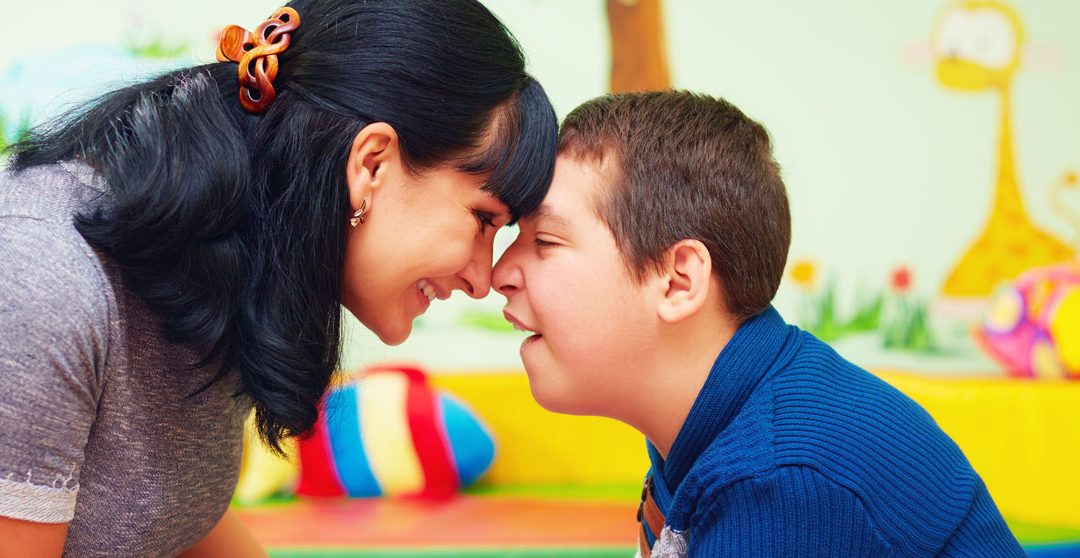Community Nursing Care
HOPE DISABILITY
Community Nursing Care Services
About half of the world’s population lives in cities. With this, comes a rise in the number of people living with various types of disabilities. What was once only seen as an isolated problem is now being seen as a growing concern. As a result, there is an increasing need for specialized care services that cater to the needs of individuals with disabilities and their families.
Beyond supporting those who have been diagnosed and receiving treatment, there are other ways in which you can support those who have been diagnosed with a disability. These include providing care and nursing support to those who have been diagnosed with a disability, as well as their family members, friends and caregivers.
Get a Free Quote!
Community Nursing Care benefits
Community nursing care NDIS
Nursing is an important aspect of the health care system in many countries and an important profession for people who have a disability. The National Disability Insurance Scheme (NDIS) was implemented in Australia in July 2013 and aims to transition people with disabilities into a society where they can participate in everyday life just like others. Nursing care has become an increasingly important part of health care; however, it is undervalued and underfunded in many countries. In addition, there are many people with disabilities who desire to participate in nursing care but do not have access to this option. The NDIS was designed to address these issues as well as to provide people with disabilities access to the same health care resources that others use. The NDIS Act states that people with disabilities should be able to access Medicare-funded nursing care, which includes care provided by registered nurses (RNs). However, the Act does not define what a person with a disability is, or what type of care they are able to access. The NDIS (Aged Care and Carers) Regulation 2012 (No.1) has guidelines on who can participate in the NDIS and the types of care they are eligible to access.
Community nursing care
Since the introduction of the NDIS, it has become more noticeable in the community that people with disabilities have become more visible. However, it is still common to find that people know little or nothing about disabilities or what it means to have a disability. While most people are polite and understanding, some people do not understand why a person would want to live with a disability. There are also people who believe that some disabilities can be fixed, or that the person is not really disabled and just wants to be a burden on others. In both cases, it can be intimidating and make participating in daily life more difficult. Another issue is the continuous care required by people with disabilities as they age. This is a challenge for many families and caregivers.
Community and primary health care nursing statement
The health care system in many countries is underfunded, fragmented, and understaffed. People with disabilities are overrepresented in the health care system. As a result, they face problems accessing health care and receiving quality care. People with disabilities are more likely to experience a delay in accessing health care because of their disability, and they are more likely to experience a delay in accessing health care because of a language barrier. However, many people with disabilities wish to access health care. The lack of understanding of people with disabilities and negative attitudes towards people with disabilities can make it difficult to access health care. This can also lead to people avoiding health care, which can have health consequences. In order to make things better for people with disabilities, the health care system needs to be accessible to people with disabilities. Since the health care system was designed for people without disabilities, it does not take into account the special needs of people with disabilities. Accessibility means making sure health care services are available to people with disabilities and are organized in a way that is accessible to people with disabilities. In order for the healthcare system to be accessible to people with disabilities, the healthcare system needs to be accessible to people first.
NDIS community nursing care in NSW
NDIS community nursing care services are supported by the National Disability Insurance Scheme. This is a program established in Australia to provide a bridge between disability support services and disability support services.
NDIS community nursing care is available for people with disability who are eligible for support under NDIS. The client must have one of the following conditions:
Intellectual disability
Cerebral Palsy
Autism
Mental Health
Global Delay
Communication Disability
Social Impairment
Severe Disabilities
Intravenous drug use
Community care nursing
Nursing care is an important aspect of health care, and it can play a vital role in helping people with disabilities and their loved ones to remain as healthy as possible. Nursing care is one of the most important services in health care. It enables people to access medical care if they have an illness or injury and it helps to prevent future health problems. Nursing care is essential to the health of people of all ages and abilities. Nursing care is one of the most important services in health care. It enables people to access medical care if they have an illness or injury and it helps to prevent future health problems. Nursing care is also important for people with disabilities.
NDIS community nursing care plans
The NDIS will cover the costs of health care but it is up to the person with the disability to book care with a healthcare provider. To help people with disabilities and their families access health care and maintain their health, the NDIS has developed community nursing care plans. Community nursing care plans are a voluntary agreement between a person with a disability, their carer, and the organization that is providing a community care service. The agreement outlines the care needs of the person with a disability and sets out how the community nursing care service will address these needs. The community care plan is an important part of the NDIS because it helps people with disabilities to access healthcare services that are appropriate to their needs.
Community care plan nursing
Community care plans are a vital part of the NDIS and are designed to ensure that people with disabilities have access to healthcare services that are appropriate to their needs. The community care plan is a voluntary agreement between a person with a disability, their carer, and the organization that is providing a community care service. A community care plan outlines what type of care a person with a disability and their carer are able to access through the community care service. It also outlines what assistance the carer may need to provide for the person with a disability in order to access healthcare services. This may include assistance with transport to appointments or help managing medications, such as taking the medication regularly or managing a condition such as diabetes.
Community nursing care plans
Community nursing care plans are designed to provide a roadmap for the support services you will provide to individuals with disabilities and their family members. It should include a detailed assessment of the client’s needs and support needs, along with a plan for the type and frequency of services that will be provided. Depending on the type of disability, your client may or may not be able to access the support they need in the community.
For example, a client with a learning disability may need assistance with managing their finances and health care needs. In these instances, the person may need to move out of the community into a residential care setting.
If you are just starting out providing community nursing care, it is important that you know the types of support that your clients may need and how best to meet those needs. This will be especially important for clients with complex needs.
our Support
Hope Disability Support provides support to all young people and adults with everything related to support, care, accommodation, and independent living issues. Call Hope Disability Support for all your support with the NDIS.
Clients say
Hope Disability Support's team Hope Disability Support understands us and our circumstances. They go above and beyond. We are so satisfied with their services that we will never leave.

The fact that they are available 24 hours a day is astonishing! I wouldn't have any idea what to do without Hope Disability Support. They've been there for us in times when our families needed it most.

Hope Disability Support and its experienced staff have changed my child's life for the better. I would highly recommend Hope Disability Support's services.

Previous
Next
News & Updates
We support to all youths, Young people and adults regarding anything, care , support, accommodation and independent living issues.
Personal care FAQ
What are the steps used in the community health nursing process?
Community health nursing can be defined as the process by which nurses provide health care services to individuals, families, communities, and populations. Health care is a field of medicine that focuses on the diagnosis, assessment, treatment, and prevention of disease and other disorders. Community health nursing involves two core activities: patient assessment and health promotion.
What is different between community and primary health care nursing?
Community health nurses can be found in many settings. They can work for a hospital or clinic, the public health department, or the social service department of a hospital or health care organization. They can work in an extended-care facility such as a nursing home, or in the home setting with people receiving long-term care from family members or professionals. For example, a nurse working in a hospital emergency department can provide primary health care to patients, or work in a community health office providing primary health care services such as immunizations, health screenings, and health counseling. Primary health care is a term used to describe health care delivered by medical practitioners who are not specialists. The term primary refers to the fact that the practitioner works on the basis of the diagnosis and treatment of diseases and disorders rather than on a full assessment and health promotion of an individual.
How does the NDIS community nursing care work?
Once you are registered to do community nursing support, the RN or LPN registers the patient’s name and diagnosis with the health authority. This way, the patient can get services from any health care provider in the NDIS network for community nursing care. Then the RN or LPN will talk to the community health service provider to find out the patient’s medical history and to get an assessment of the patient’s health condition. After that, the RN or LPN will write a community care nursing care plan. This plan will include instructions on what the patient can expect from a certain medication, what kind of activity the patient can do and when they can do it, and how often they should visit the doctor or a specialist. The RN or LPN will then meet with the patient and keep a daily log of their interactions. They should follow up on the community care nursing care plan by visiting the patient regularly and keeping a log of their interaction. They can also call the patient to follow up on the care plan.
Where can I get more information about community health services?
For more information about community health services, visit the NDIS website at https://nda.gov.au/ndis or call the number on the website.
Do you provide community nursing care plans?
Yes, we provide community nursing care plans for all types of disabilities. We will help you to write a care plan for the patient.
How can I get community nursing care services?
To get community nursing services, you need to register with the authority that regulates community health care. You will need to provide the authority with recent copies of your nursing or medical license and identification card. Once the authority verifies these documents and registers you as a community health nurse, you will be able to get community health services.
What is the difference between community health and primary health care?
Community health is the health care delivered to populations, as opposed to health care delivered on an individual basis by medical practitioners.
Is there any one-stop-shop for NDIS community nursing care?
The National Disability Insurance Scheme (NDIS) has made it easier for you to provide community health care services. NDIS is a unique system that is aimed at facilitating the transition of people with disability from disability support services to mainstream community services. NDIS provides those who are eligible with a single point of access to a range of supports and services that can help people with disability, their family members, and carers. NDIS is also very helpful for community health workers who want to provide long-term care services.







